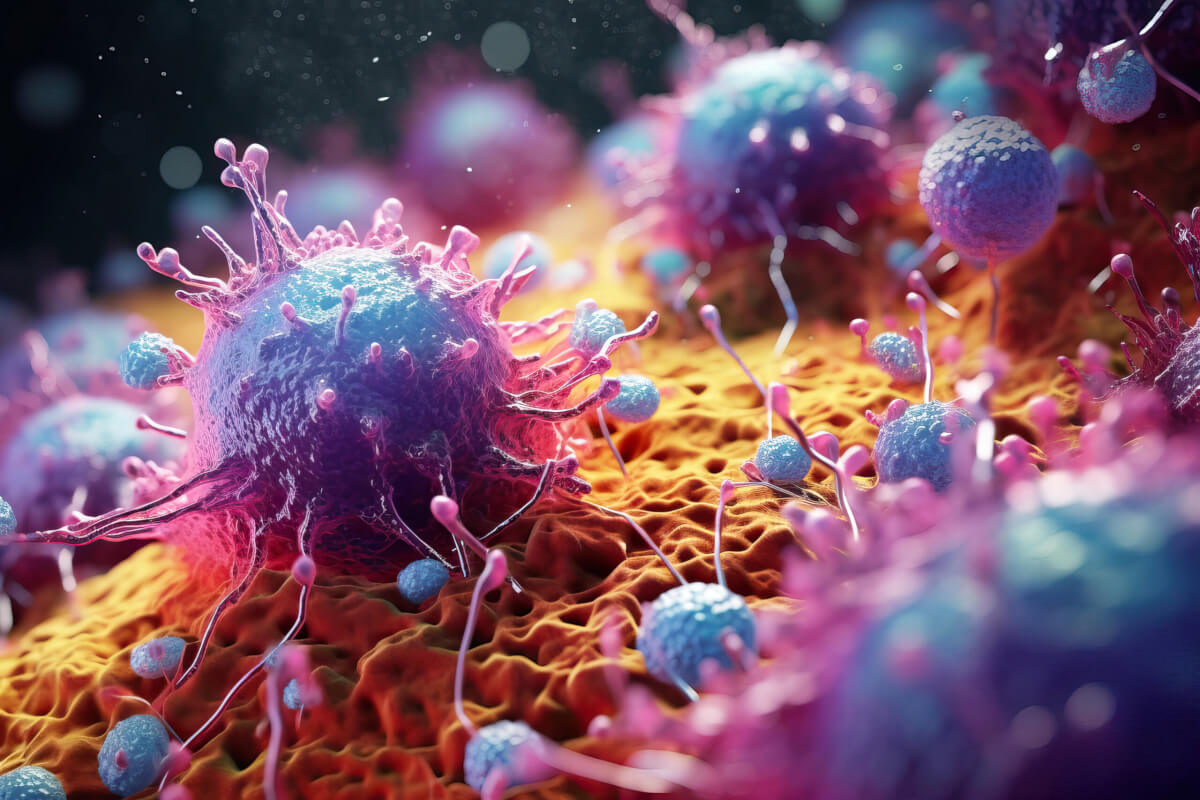How exactly does intermittent fasting achieve this?
NEW YORK — Could skipping a few meals each week help you fight cancer? It might sound far-fetched, but new research suggests that one type of intermittent fasting could actually boost your body’s natural ability to defeat cancer.
A team of scientists at Memorial Sloan Kettering Cancer Center (MSK) has uncovered an intriguing link between fasting and the body’s immune system. Their study, published in the journal Immunity, focuses on a particular type of immune cell called natural killer (NK) cells. These cells are like the special forces of your immune system, capable of taking out cancer cells and virus-infected cells without needing prior exposure.
So, what’s the big deal about these NK cells? Well, they’re pretty important when it comes to battling cancerous tumors. Generally speaking, the more NK cells you have in a tumor, the better your chances of beating the disease. However, there’s a catch: the environment inside and around tumors is incredibly harsh. It’s like a battlefield where resources are scarce, and many immune cells struggle to survive.
This is where fasting enters the picture. The researchers found that periods of fasting actually “reprogrammed” these NK cells, making them better equipped to survive in the dangerous tumor environment and more effective at fighting cancer.
“Tumors are very hungry,” says immunologist Joseph Sun, PhD, the study’s senior author, in a media release. “They take up essential nutrients, creating a hostile environment often rich in lipids that are detrimental to most immune cells. What we show here is that fasting reprograms these natural killer cells to better survive in this suppressive environment.”

Illustration of a group of cancer cells. Researchers found that periods of fasting actually “reprogrammed” these NK cells, making them better equipped to survive in the dangerous tumor environment. (© fotoyou – stock.adobe.com)
How exactly does intermittent fasting achieve this?
The study, which was conducted on mice, involved denying the animals food for 24 hours twice a week, with normal eating in between. This intermittent fasting approach had some pretty remarkable effects on the NK cells.
First off, fasting caused the mice’s glucose levels to drop and their levels of free fatty acids to rise. Free fatty acids are a type of lipid (fat) that can be used as an alternative energy source when other nutrients are scarce. The NK cells learned to use these fatty acids as fuel instead of glucose, which is typically their primary energy source.
“During each of these fasting cycles, NK cells learned to use these fatty acids as an alternative fuel source to glucose,” says Dr. Rebecca Delconte, the lead author of the study. “This really optimizes their anti-cancer response because the tumor microenvironment contains a high concentration of lipids, and now they’re able enter the tumor and survive better because of this metabolic training.”
The fasting also caused the NK cells to move around the body in interesting ways. Many of them traveled to the bone marrow, where they were exposed to high levels of a protein called Interleukin-12. This exposure primed the NK cells to produce more of another protein called Interferon-gamma, which plays a crucial role in fighting tumors. Meanwhile, NK cells in the spleen were undergoing their own transformation, becoming even better at using lipids as fuel. The result? NK cells were pre-primed to produce more cancer-fighting substances and were better equipped to survive in the harsh tumor environment.

Fasting reshapes tissue-specific niches to improve NK cell-mediated anti-tumor immunity (Credit: Immunity)
What kind of treatments could this create?
While this research is exciting, it’s important to note that it’s still in the early stages. The study was conducted on mice, and more research is necessary to understand how these findings might apply to humans. However, the researchers point out that blood samples from cancer patients show similar reductions in circulating NK cells during fasting, suggesting that similar reactions might be taking place within people.
So, what does this mean for cancer treatment? There are several potential avenues for further research. Clinical trials are already beginning to study the safety and effectiveness of fasting in combination with existing cancer treatments. Another possibility is developing drugs that could target these mechanisms without requiring patients to fast. There’s even the potential for NK cells to be put into a fasted state outside the body before being injected into a patient battling cancer.
- digitaldon2, Adenman and Irfannsane
-

 3
3



Recommended Comments
There are no comments to display.
Join the conversation
You can post now and register later. If you have an account, sign in now to post with your account.
Note: Your post will require moderator approval before it will be visible.